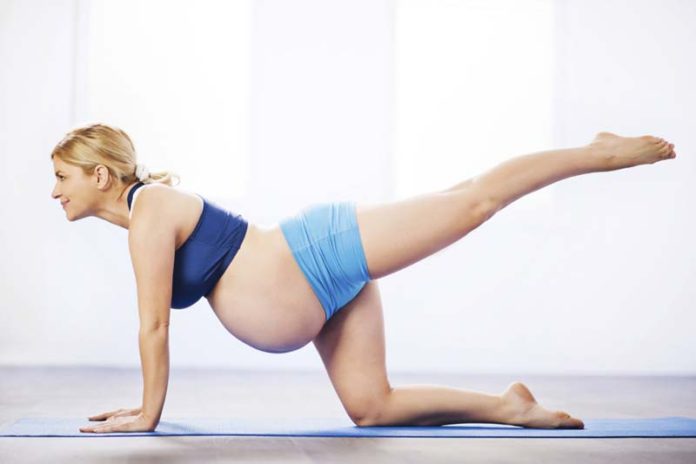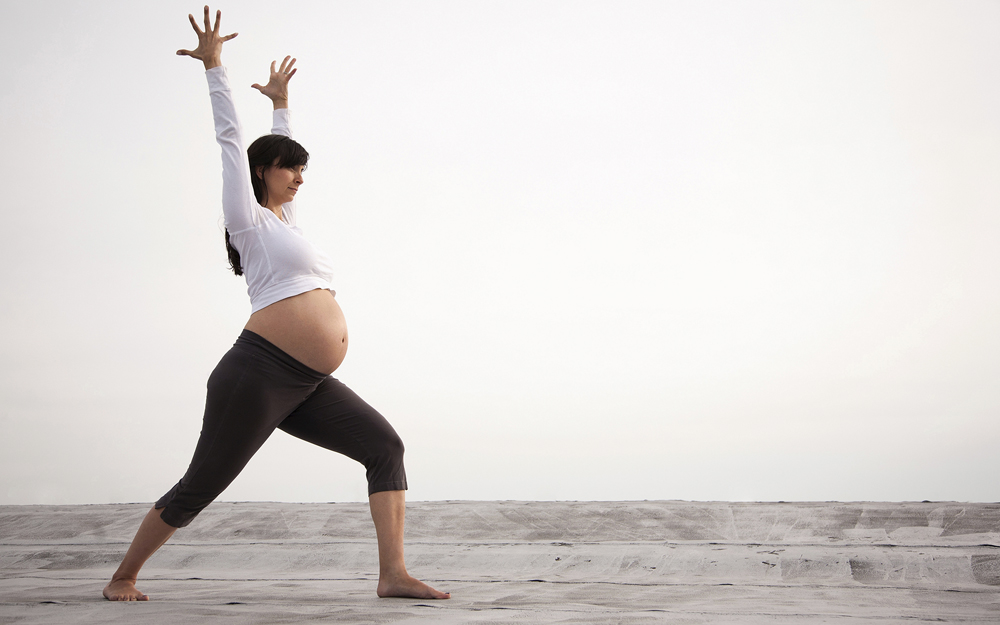It will be much easier for you to adapt to your changing shape and pregnancy weight gain the more active and fit you are during this significant period. It will also help you to deal with labor and get back into shape after the birth.
Continue your normal daily physical activity or exercise such as: running, dancing, yoga or even walking to the shops and back. Do above-mentioned for as long as you feel comfortable. Exercise is not unsafe for your baby. In fact, women who are active are less probably to experience problems in later pregnancy and labor.
Check out 5 comfy office chairs for pregnancy.
Tips on how to exercise while pregnant
1) Try to always warm up prior to exercise, and cool down after. Try to be active on a daily basis – 30 minutes of walking each day can be sufficient, but if you cannot fulfill that, any amount is better than nothing. Do not exhaust yourself. You may have to take it easy as your pregnancy progresses or if your maternity team recommends you to. Consult your maternity team, If in doubt.
2) It is very important that you are able to hold a conversation as you exercise when pregnant. If you become out of breath as you talk, then you are possibly exercising too strenuously. Drink good deal of water and other fluids.

Here you can find out about office chairs for pregnancy.
3) If you were not active prior to your pregnancy, do not abruptly take up tough exercise. If you start an exercise program, like swimming, running, cycling or aerobics classes, tell the instructor that you are pregnant and start with no more than 15 minutes of continuous exercise, 3 times a week. Intensify this step-by-step to daily 30-minute sessions. Exercise does not have to be tough to be beneficial.
4) If you are planning to attend exercise classes, make certain that your instructor is properly qualified and informed about your pregnancy.
5) You might like to try swimming because the water will support your increased weight. Also attending aqua-natal classes with qualified instructors is very beneficial for you.
Which exercises to avoid when pregnant?
1) Avoid lying flat on your back for extended periods, especially after 16 weeks, because the weight of your bump presses on the main blood vessel returning blood to your heart and this can cause you to faint.
2) Do not take part in contact sports where there is a chance of being hit, such as judo, kickboxing or squash.
3) Do not go scuba diving, because the baby has no protection against decompression sickness and gas embolism, i.e.: gas bubbles in the bloodstream.
4) Do not exercise at heights over 2,500m above sea level – this is because you and your baby are at risk of altitude sickness.
You may notice that you leak urine when you strain, sneeze or cough, it happens when your pelvic floor muscles are weak. There is no reason to feel embarrassed, because this is quite common. It is known as stress incontinence and it can continue after pregnancy as well.
You can make these muscles stronger by doing pelvic floor exercises. This will help you to diminish or avoid stress incontinence after pregnancy. All pregnant women should do pelvic floor exercises, even if you are young and not troubled by stress incontinence now.

Click here for the best office chairs for pregnancy.
How to perform pelvic floor exercises?
1) Tighten and close up your buttocks, as if you are trying to stop yourself going to the toilet; 2) simultaneously draw in your vagina as if you are gripping a tampon; 3) draw in your urethra as if you are stopping the flow of urine; 4) at first time, execute this exercise promptly, tightening and releasing the muscles right away; 5) then do it little by little, keeping the contractions for as much time as you can, before relaxing; 6) try to count to 10; 7) Try to perform 3 sets of 8 squeezes every day.
In order to remember easily, you can do a set at each meal. Also, try to practice tightening the pelvic floor muscles before and during sneezing and coughing.





![10 Best Office Chairs For Sciatica [2020 Back Pain Guide] 10 Best Office Chairs For Sciatica [2020 Back Pain Guide]](https://bestofficechair.org/wp-content/uploads/2018/05/best-office-chair-for-sciatica-150x150.jpg)
![Top 15 Reclining Office Chairs Reviewed [2018 Definitive Guide] Top 15 Reclining Office Chairs Reviewed [2018 Definitive Guide]](https://bestofficechair.org/wp-content/uploads/2018/09/office-chair-that-reclines-for-naps-150x150.jpg)
![10 Best Reclining Office Chair Picks [New 2019 Guide] 10 Best Reclining Office Chair Picks [New 2019 Guide]](https://bestofficechair.org/wp-content/uploads/2018/11/reclining-office-chair-150x150.jpg)

